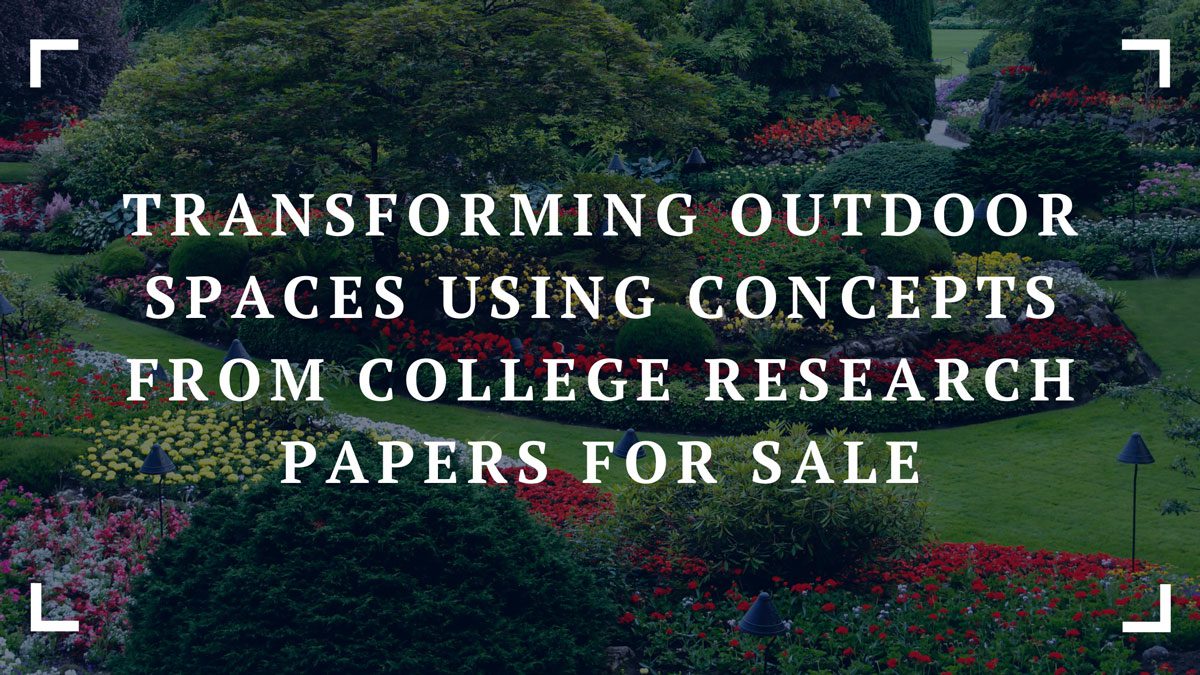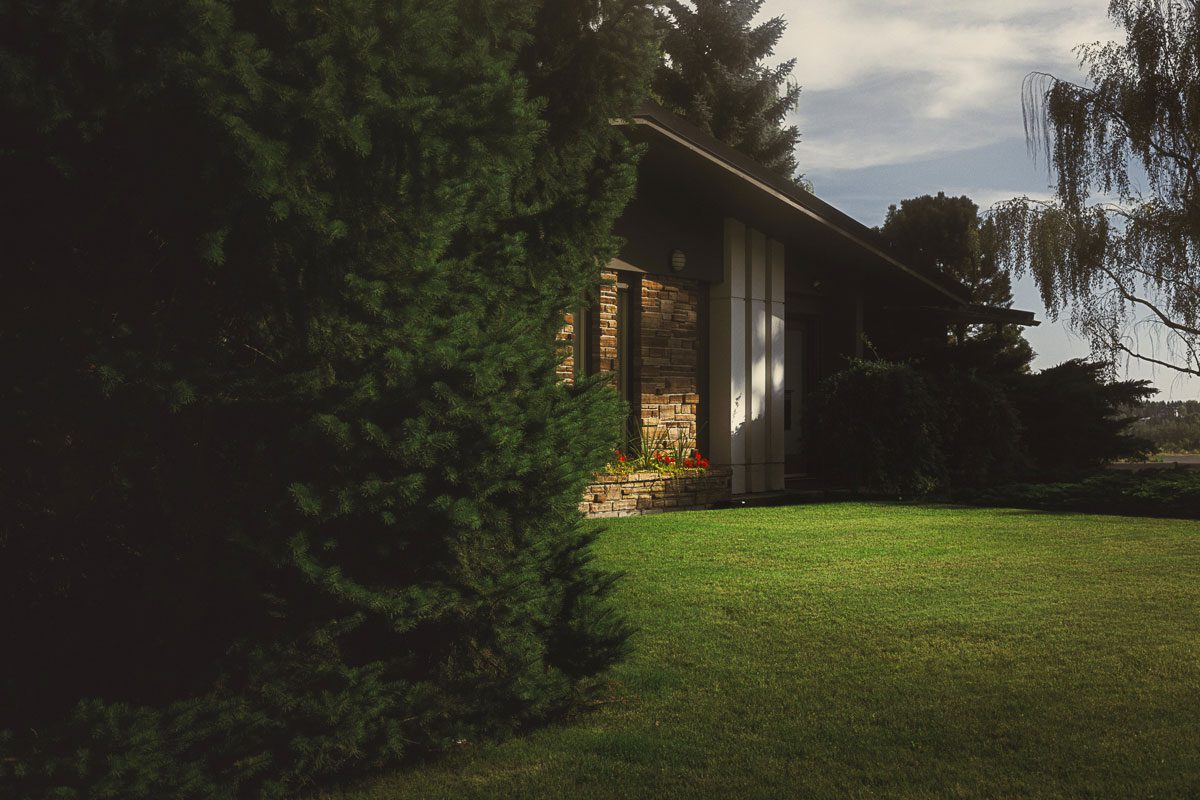Landscaping, at its core, is an art form that combines aesthetics with functionality to create harmonious outdoor spaces. It’s about understanding the elements of design, the ecology of the space, and the needs of those who will enjoy it. In this intricate process, inspiration can come from various sources, including academic research.
For students and budding landscape designers, the challenge often lies in accessing diverse and innovative ideas that can be applied to real-world landscaping projects. This is where the academic realm, with its vast resources and research, becomes a valuable asset.
One unexpected source of such inspiration could be college research papers for sale, particularly those available through services like Studyfy. These papers, often written on a wide array of subjects, can provide unique insights and ideas that can be creatively adapted into landscaping projects. By exploring concepts from various disciplines, students can enrich their design approach and bring fresh perspectives to their landscaping endeavors.

Integrating Ecological Concepts into Landscaping
Research papers in environmental science, ecology, and related fields offer a wealth of knowledge that can be applied to landscaping. Studyfy’s academic papers can provide students with cutting-edge information on sustainable practices, local flora and fauna, and ecosystem management.
By reviewing these papers, students can learn about native plant species that are more suited to local conditions, require less maintenance, and contribute to local biodiversity. This knowledge is crucial in creating environmentally responsible and sustainable landscaping designs.
Additionally, these papers can offer insights into soil management, water conservation techniques, and using natural materials. Integrating these ecological concepts not only enhances the aesthetic appeal of the space but also ensures its sustainability and functionality.
Employing Design Principles from Architectural Research
Architectural research papers delve into various design principles that can be incredibly beneficial for landscaping. Studyfy’s collection includes papers that explore spatial design, the use of geometry in creating visual interest, and the integration of artificial structures with natural elements.
These principles can be applied to landscaping to create spaces that are both functional and visually appealing. For instance, understanding the interplay of light and shadow, or how different shapes and lines can guide movement and create focal points, can significantly enhance a landscaping project.
Furthermore, architectural research can inspire innovative uses of materials and textures in landscaping. This could range from the choice of paving materials to the incorporation of artistic elements like sculptures or water features.
Drawing Inspiration from Cultural and Artistic Themes
Landscaping is not just about plants and structures; it’s also about creating an ambiance that reflects cultural and artistic themes. Research papers in art, history, and cultural studies, available through Studyfy, can be a treasure trove of ideas for landscaping projects.
These papers can provide insights into traditional garden designs from different cultures, which can be adapted to modern contexts. For example, the minimalist elegance of Japanese Zen gardens or the vibrant colors of Mediterranean landscapes can inspire unique design themes.
Additionally, art history papers can offer ideas on color combinations, patterns, and textures that can be translated into planting schemes and layout designs. This approach can help create outdoor spaces that are not only beautiful but also rich in cultural and artistic significance.
Harnessing Historical and Geographical Insights
Incorporating historical and geographical insights from research papers can add depth and authenticity to landscaping projects. Studyfy’s diverse range of academic papers includes historical studies and geographical analyses that can offer valuable context and inspiration.
Historical research can reveal traditional landscaping methods and designs specific to different regions and eras. These insights can be adapted to modern landscaping projects, adding a layer of historical significance and storytelling to the design.
Geographical research papers can provide information on local geology, climate patterns, and topographical features. Understanding these aspects is essential for creating landscapes that are in harmony with their natural surroundings and can withstand local environmental conditions.
Exploring Botanical and Horticultural Studies
Botanical and horticultural research papers can provide detailed information on plant species, their growth patterns, and their ecological relationships. Studyfy’s collection likely includes papers that delve into plant biology, offering insights that are critical for effective garden design and plant selection.
These papers can inform landscapers about the suitability of certain plants for specific environments, their maintenance requirements, and how they interact with other plants and wildlife. This knowledge is crucial for creating sustainable and ecologically balanced gardens.
Furthermore, horticultural studies can inspire innovative planting designs and techniques. For example, research on vertical gardening or hydroponic systems could be applied to create unique and space-efficient landscapes in urban settings.

Utilizing Psychological and Social Research
Landscaping is not just about aesthetics and ecology; it also has psychological and social dimensions. Research papers in psychology and sociology can provide insights into how outdoor spaces impact human behavior and well-being.
Studyfy’s academic papers might explore concepts such as the restorative effects of green spaces on mental health or how communal gardens can foster social cohesion. Applying these concepts can help create landscapes that not only look good but also promote mental health and community building.
Additionally, social research can inform the design of inclusive and accessible landscapes. Understanding the diverse needs of different community members ensures that outdoor spaces are welcoming and usable for everyone.
Final Thoughts
Academic research offers a vast array of concepts and ideas that can be creatively applied to landscaping. Services like Studyfy, with their extensive collection of college research papers for sale, provide an invaluable resource for students and aspiring landscape designers.
By integrating ecological principles, architectural design concepts, and cultural and artistic themes from these academic papers, one can transform outdoor spaces into well-rounded, sustainable, and aesthetically pleasing landscapes. This fusion of academic knowledge with practical application marks a new era in landscaping, where learning and creativity go hand in hand.


